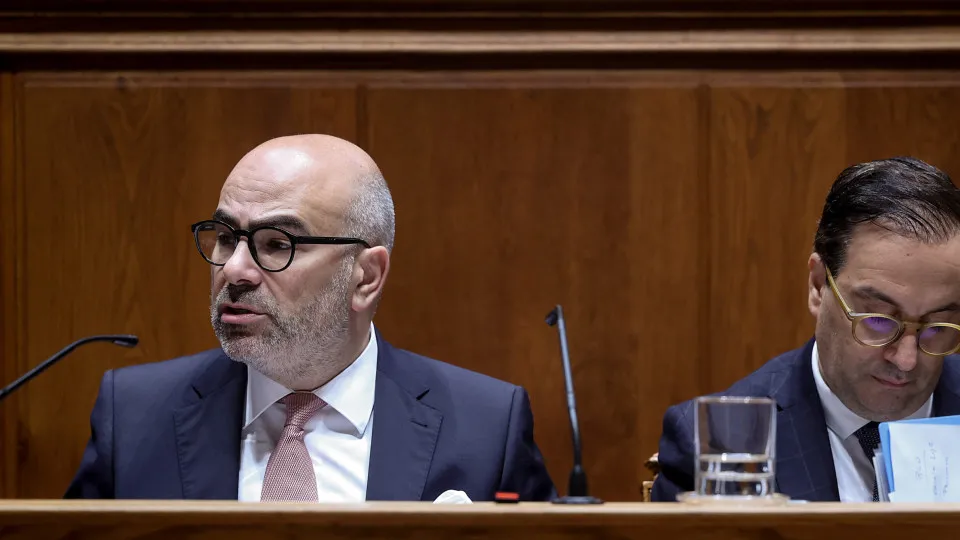
“I believe it is a decisive step towards establishing, after 50 years of the institution of political autonomies—one of the greatest achievements of Portuguese democracy—a consolidated and mature relationship with the Central State,” stated the President of the Autonomous Region of Madeira, Miguel Albuquerque (PSD).
The statement by the Madeira leader came after a Council of Ministers meeting, where he participated alongside the Azores counterpart, José Manuel Bolieiro. The meeting followed the approval of resolution projects concerning the two archipelagos and decided on the creation of a joint working group to bring a new Regional Finance Law (LFR) to parliament in 2026.
“Currently, the Regional Finance Law is unfair, it’s an outdated law that needs to be quickly changed. In this regard, I want to commend the Prime Minister’s vision and decision-making ability to create a working group to address an uncomfortable situation,” emphasized Miguel Albuquerque.
According to the President of the Government of the Autonomous Region of Madeira, these changes allow for reflection on “the costs of insularity, transport, education, health, and other areas such as civil protection.”
“We, as heads of government, cannot continue playing the role of beggars, going through a stations of the cross to demand money,” he pointed out.
Similarly, the President of the Regional Government of the Azores, José Manuel Bolieiro, considered the creation of this working group a “paradigm shift” in the “functioning of the State with the autonomies.”
“We are experiencing a historic moment in Portuguese democracy and the understanding of the Portuguese rule of law with its political autonomies, as it transitions from often perceived tutored autonomy to the comprehension of participatory autonomy,” said the Azorean leader.
According to José Manuel Bolieiro, changing the Regional Finance Law will ensure “more predictability, stability, regularity, and efficiency” for the autonomous regions.
Bolieiro also expressed “full satisfaction at participating in this historic moment,” highlighting that the Prime Minister “values the political autonomies of a decentralized country for its participatory vocation.”
The creation of the working group, which will include representatives from the Governments of the Republic, Madeira, and the Azores, was approved today in the Council of Ministers.
The Prime Minister also announced that in early 2026, the first summit among the three governments—all led by the PSD—will take place in the Azores. Initially planned for late 2024, it was postponed due to political crises, first in Madeira and then on the mainland.
“We will then try regularly not only to promote these forums of articulation between Governments but also the realization of summits, which could be an opportunity to subscribe to many joint decisions” to serve the interests of the Autonomous Regions and Portugal “as a whole,” he said.
Montenegro classified the participation of the regional government leaders, for the first time, at a Council of Ministers meeting as “an important milestone in institutional relations and in the articulation and partnership” between the Government of the Republic and the Governments of the Autonomous Regions.
The Council of Ministers also approved four measures to “enhance and strengthen the electronic communications system across the entire territory, powered by the Atlantic CAM submarine cable system, connecting the Mainland, Azores, and Madeira,” according to a statement released this afternoon.
One of the resolutions authorizes the rescheduling and implementation of multi-year expenditure related to the submarine cable system, allowing the investment to reach 190 million euros, covering the years 2023 to 2051.
Another resolution authorizes Infraestruturas de Portugal (IP) to incur costs of up to 155 million euros for managing the maintenance of the submarine cables, reverting to the State at the end of the contractual period.
The State also mandates IP to “develop studies for the contracting and implementation of the Azores Ring Submarine Cable Project, ensuring interconnection with the Atlantic CAM and authorizing expenditure of up to 1 million euros.”
Furthermore, the Council of Ministers deliberated on the State’s interest in replacing the submarine cable that ensures electronic communications between the islands of Madeira and Porto Santo and expressed the State’s willingness to finance the project.
“The project aims to replace the existing submarine cables, which have reached the end of their useful life, ensuring the digital autonomy of the Autonomous Region of the Azores, economic and social cohesion, and open and non-discriminatory exploration of inter-island communications,” states the note.
On another note, the Council of Ministers approved a resolution authorizing the Environmental Fund to spend up to a maximum of 10 million euros on the “Azores Marine Park” project.
“This measure aims to financially support the fisheries sector in light of the restrictions inherent to the creation of the Regional Network of Marine Protected Areas of the Azores (RAMPA), which reinforces the protection of 287,000 square kilometers of marine ecosystems and contributes to meeting the national and European target of protecting 30% of the marine area by 2030,” the Ministry explains.
According to the note, these supports “ensure the mitigation of immediate losses and the gradual adaptation of the regional fleet to the new conditions of sustainable fishing, guaranteeing the balance between environmental conservation and the sector’s economic viability.”
A resolution was also approved, defining the competencies and responsibilities in implementing the initiative “Ponta Delgada 2026 – Portuguese Capital of Culture.”




